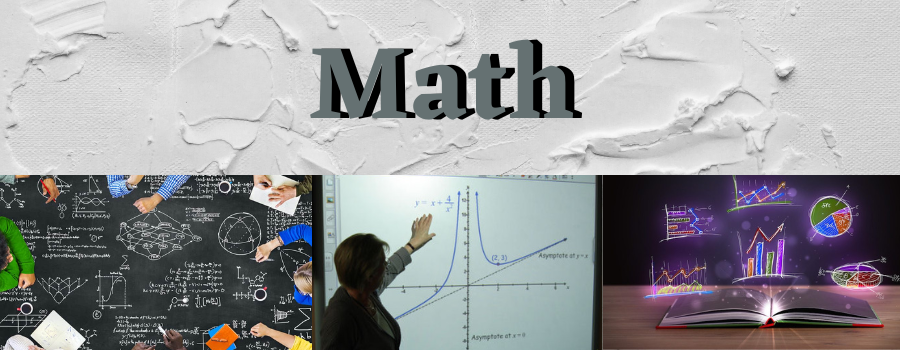All Departments
Page Navigation

-
“Mathematics is not about numbers, equations, computations, or algorithms: it is about understanding.”
~William Paul Thurston - an American mathematician
Courses
-
Math Essentials
The Math Essentials course helps students develop a good understanding of basic math concepts and skills. Students will learn about whole numbers, fractions, decimals, percentages, exponents, linear equations and operations with algebraic expressions.
Intro to Algebra Skills/Concepts
Intro to Algebra Skills and Concepts is intended for students who need to gather a basic understanding of how to perform Algebra operations. This course will benefit students who need to know how to perform basic Algebra operations, which involve simplifying, factoring, or solving equations in the form of inequalities, fractions, exponents and word problems.
Algebra Foundations 1
Algebra Foundations 1 introduces the student to variables, algebraic expressions, equations, functions, inequalities, and their graphical representations. The student will develop the ability to explore and solve mathematical problems, think critically, work cooperatively with others, and communicate mathematical ideas clearly.
Algebra Foundations 2
Algebra Foundations II introduces the student to variables, algebraic expressions, equations, functions, inequalities, and their graphical representation. The student will develop the ability to explore and solve mathematical problems, think critically, work cooperatively with others, and communicate mathematical ideas clearly. This course, together with Algebra Foundations I, counts towards meeting the Algebra I graduation requirement.
Math 20
Math 20 includes the properties of real numbers, factoring, exponents and radicals, solving and graphing linear equations, polynomials and rational algebraic expressions, and linear systems of equations. The student will develop the ability to explore and solve mathematical problems, think critically, work cooperatively with others, and communicate mathematical ideas clearly.
Geometry
The Geometry course is a comprehensive look at the study of geometric concepts including the basic elements of geometry, proofs, parallel and perpendicular lines, the coordinate plane, triangles, quadrilaterals, polygons, circles, trigonometry, congruence and similarity, surface area, volume and transformations. Students will acquire and demonstrate knowledge of concepts, definitions, properties, and applications of the topics listed as well as develop the computational skills and strategies needed to solve problems. Students will develop critical thinking and decision-making skills by connecting concepts to practical applications.

